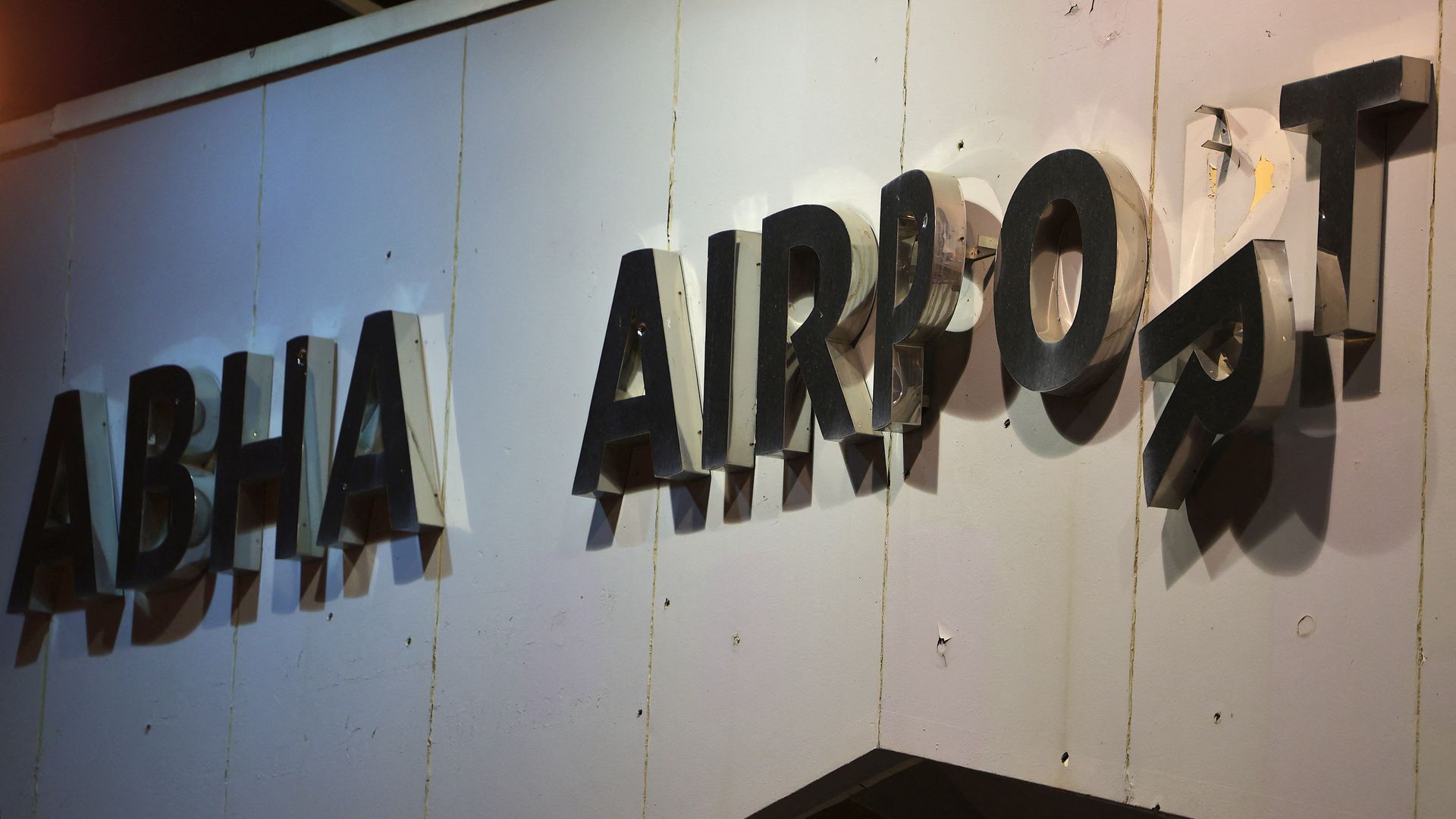Sep 11, 2021 - World
U.S. removes missile defenses from Saudi Arabia
Add Axios as your preferred source to
see more of our stories on Google.

A sign at the entrance of Abha airport in the southwest of Saudi Arabia is damaged from a drone attack that wounded eight people. Photo: Fayez Nureldine/AFP via Getty Images
